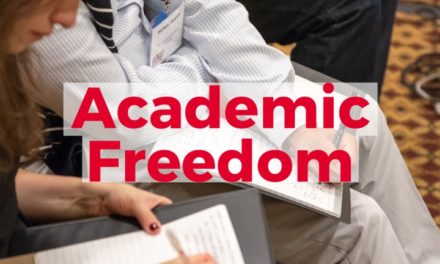The Commercial Appeal has editorialized on a topic of which it knows nothing. In the call for passage of a voucher bill for public education, our local paper has once again ventured down the ideological path promoted by an elite group of “ed-reformers” which have privatization of public schools on the agenda rather than better education for the kids attending the schools they wish to “reform,” see it here.
This privatization movement is best exemplified by the strategy promoted by Michelle Rhee, and her politically motivated and directed organization, “StudentsFirst.” Unfortunately the name they have chosen is the opposite of what they imply. In this editorial, the Commercial Appeal has made a number of statements which are just not supported by the research.
Central to their argument is that students will do better in a private school than in a public school. Since these private schools are not subject to the same testing requirements as the publics, which this ideologically driven group holds as the proof, how do they know there is a better outcome than that of the publics? Simply put, they don’t.
They may well counter that the charter movement is their proof as they truly believe, as do many “true believers,” that charters outperform the traditional public schools. Unfortunately, last year in Memphis the proportion of charters failing with the standardized tests is higher than it was for the traditional publics.
According to data on failing schools as reported in the Commercial Appeal in August of 2012, there are somewhere between 1,400 and 1,670 public schools in the state of which 5% are failing. Of the failing schools, just over 4% are charters. According to the Tennessee Charter School Association there are 41 Charters in the state; that means 7.3% of them are failing while only 5% of all publics (including charters) are failing statewide.
The StudentsFirst group recently awarded Louisiana the best state in the country in terms of creating a public policy atmosphere which was consistent with their privatization agenda. However, Louisiana has the worst record in the country on the National Assessment of Education Progress (NAEP), the only standardized test which is administered nationwide and is considered the gold standard of tests by the education community.
We might also point out here that the NAEP scores have been rising nationwide for two decades. As Doug Henwood has pointed out here, “StudentsFirst has Louisiana at #1 in its rankings—but the state ranks 49th in reading and 47th in math. North Dakota, which StudentsFirst ranks 51st, comes in at #14 in reading scores and #7 in math. Massachusetts, which ranks #1 in both reading and math scores (and which is also the most unionized state for teachers in the country), comes in at #14 on the Rhee scale.”
The CA states that “Nationally, they (vouchers) have been praised as a way to level the playing field for low-income students.” However, the highly respected non-partisan Center for Education Policy, in a recent report on voucher education (“Keeping Informed about School Vouchers A Review of Major Developments and Research, July 2011” look here for full report, challenges this on a number of fronts.
In short, vouchers do not have a strong effect on students’ achievement. They further point out that “the rhetoric used to support voucher programs has shifted, with some proponents giving less emphasis to rationales based on achievement and more emphasis to arguments based on graduation rates, parent satisfaction, and the value of choice in itself.” While there are some studies showing a higher high school graduation rate among students with vouchers, this difference may well be the results of higher motivation derived from parents who pursue the vouchers than a difference in the schools accepting vouchers.




And just wait until the off-brand churches start to capture your tax dollars with vouchers. Or the unscrupulous for-profits. This is the slipperiest of slopes, and we are fools to be sucked into this. There is no evidence that this is good for kids. Only profits.